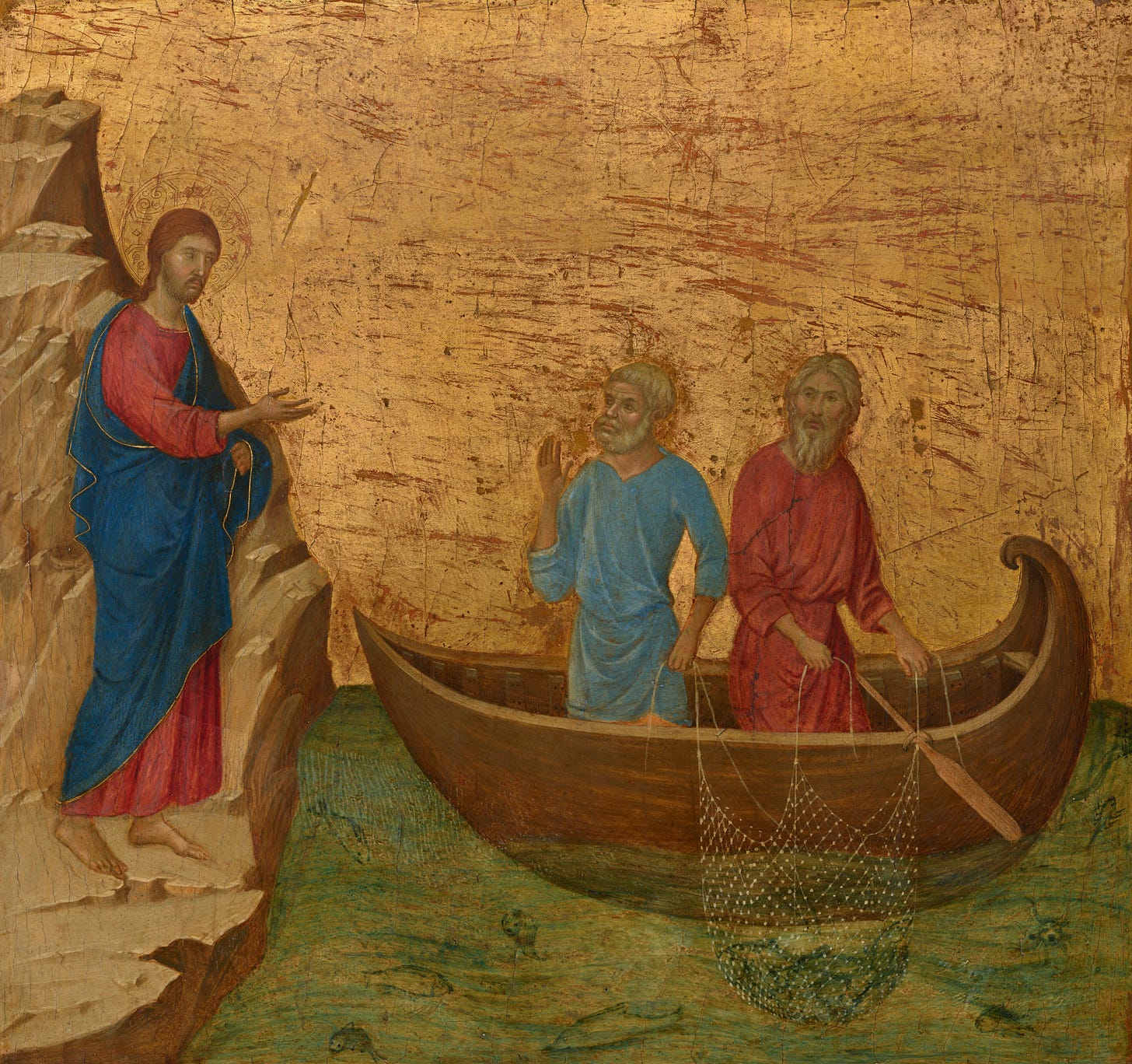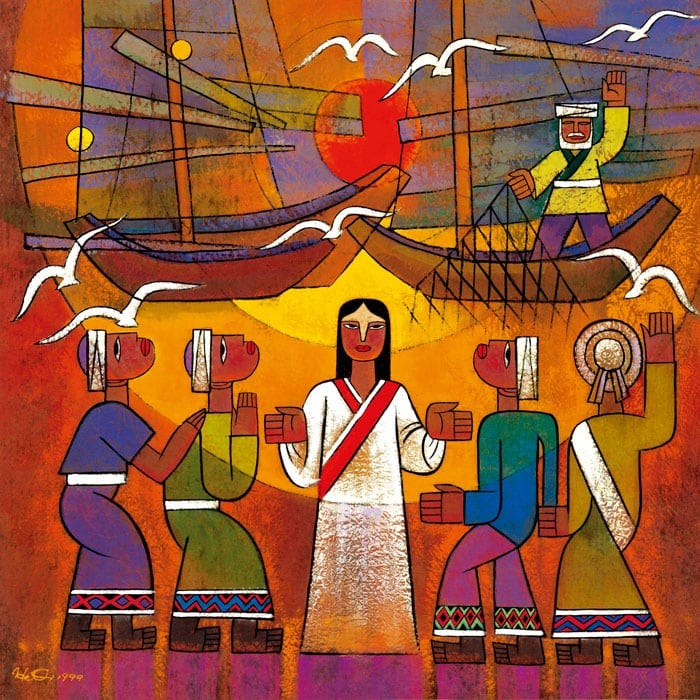“In turning toward us, God demonstrates God’s choice to work not alone. Christ, the great delegator. Jesus didn’t ask the intellectual, ‘Does this make sense?’ He commanded the vocational: ‘Follow me.’” – Will Willimon, God Turned Toward Us: The ABCs of Faith
Standing along the banks of the Sea of Galilee, organizing their fishing gear, repairing nets, and preparing to go fishing again after completing a day on the water two sets of brothers dropped what they were doing to follow and unknown Rabbi who told them he would, "make them fishers of men.” We know they had a profession. Simon Peter and Andrew, James and John were not seeking out a new vocation or way of life. As Jesus moved along the shoreline the two groups of brothers may not have even noticed Jesus before he approached them, offering them a chance to upend their lives and the lives of their families.
The four disciples acted immediately. The gospel writers do not tell us why the disciples acted without haste. We have received very little of the backstory. This is one of those moments when I wish we had just a sentence or two more so that we might have a better understanding of why these four disciples and the remaining eight were so compelled to stop, drop their nets, and follow Jesus. The disciples were not offered a prophetic mantle. Instead, Jesus commanded their attention.
We can look back and ahead in Mark’s gospel to see why they acted. The synagogue crowd in Capernaum was “amazed” and asked one another “What is this? A new teaching--with authority! He commands even the unclean spirits, and they obey him.”[i] Jesus has an authority that no other person or “little g” god wields.
So Jesus calls and we follow. The churchy term for following and growing in faith is “discipleship.”
On the topic, friend and mentor Rev. Will Willimon writes, “Discipleship is the way Christ rescues you from vain attempts to make something of your life. God gives you a job that’s more important than you. Faced with a broken world, creation out of kilter, God doesn’t ‘send in the Marines.’ God casts forth the meek, foolish, and weak. Us.”[ii]
The new vocation of discipleship varies as much as the person called. Yet, each is a divine calling that makes us part of the kingdom building work God has undertaken. Our vocation as disciples of Jesus Christ not only places us in shoes similar to the first twelve disciples, but this vocation places us in ministry alongside Christians around the world, spanning geography and time.
Our vocations are one of the ways God is moving toward the fulfillment of the kingdom of God.
Our vocations are one-way Willimon writes that God is “turning the world upside down”[iii] so that God can put the world back together.
We find hope in that our vocations are a gift from God and not the result of our own abilities or merits. Jesus is our hope, and not our ability to follow him perfectly.
In and through Christ, God has reconciled the world. When we choose the ways of this world over the ways of God the faithfulness of Christ stands. The Hope of Christ remains. When our love for one another fails, when our love for God fails the love of Christ stands. In Christ, the Kingdom of God was at hand, inaugurated by his life, death, and resurrection. The invitation given to his first disciples is an invitation to us to be part of the kingdom-building work that began on the banks of the Jordan River and Sea of Galilee.
Jesus gave a simple instruction, “Follow me.[iv] Two words, without much explanation, and yet those words have set the course for the church, for generation upon generation of Christians to do one of two things: get it right or get it wrong.
When we get it right, when we drop our nets, reorienting our lives to follow Jesus miraculous things occur. The hungry are fed, the lost are found, and healing begins as divisions are cast aside because of Christ’s authority over creation.
Our focus moves towards God and away from others who ask us to follow them.
Jesus gave a simple instruction, but when the church gets that instruction wrong, the results are anything but miraculous or a sign that the Kingdom of God is at hand. What we get wrong is thinking that the Kingdom of God has anything to do with our actions. The church has proven this time and time again, that we cannot follow the simplest instruction- to follow.
To follow Jesus as he fed the hungry on the side of a hill.
To follow Jesus as he stood beside a woman at a well.
To follow Jesus as he healed the sick and invited the marginalized into his Kingdom as honored guests.
To follow Jesus’ call to put our weapons down.
To follow Jesus is to follow the Hope of the world, not storm the castle, secure our rights, or make anything great. To follow Jesus is to live in the Kingdom of God that is present now and work alongside other disciples as we await the fulfillment of Christ's kingdom.
[i] Mark 1:27
[ii] Willimon, Will. God Turned Toward Us: The ABCs of Christian Faith. Abingdon Press. 2021.
[iii] Ibid.
[iv] Mark 1:17







This is so good. I’ve been thinking recently about the concept of being a “sailboat” vs. being a “rowboat.” When we (churches, families, individuals) are rowboats, we attempt to set our own direction and generate our own energy. When we are sailboats, we hoist the sails to catch the wind - something completely beyond our power to influence.
It seems like the difference between following and charting our own course.